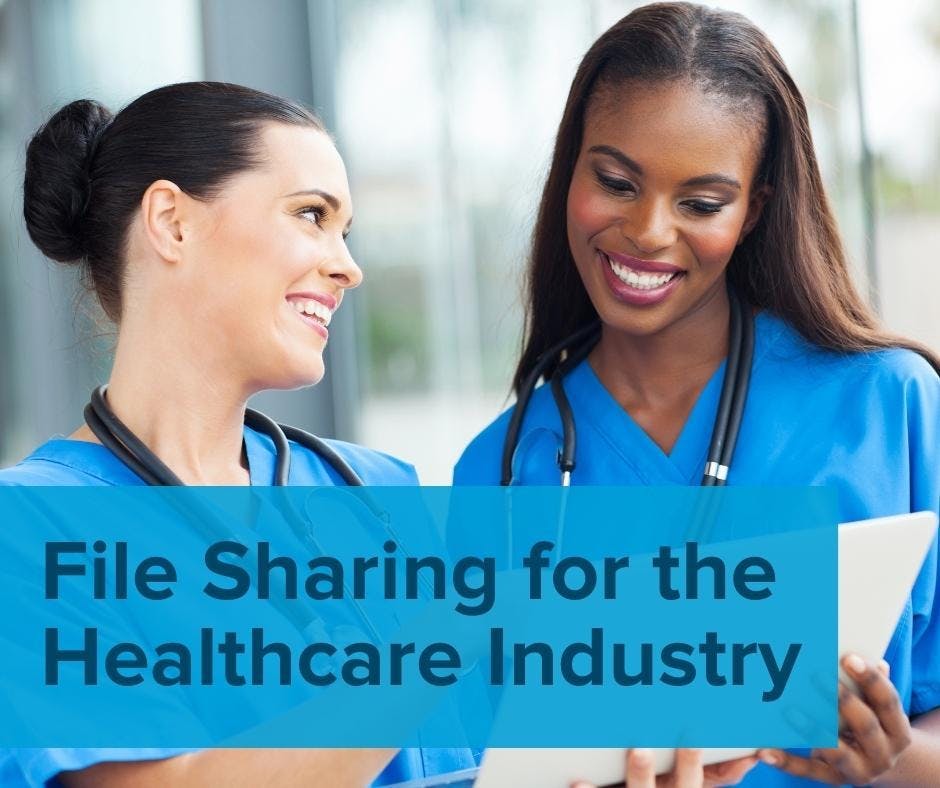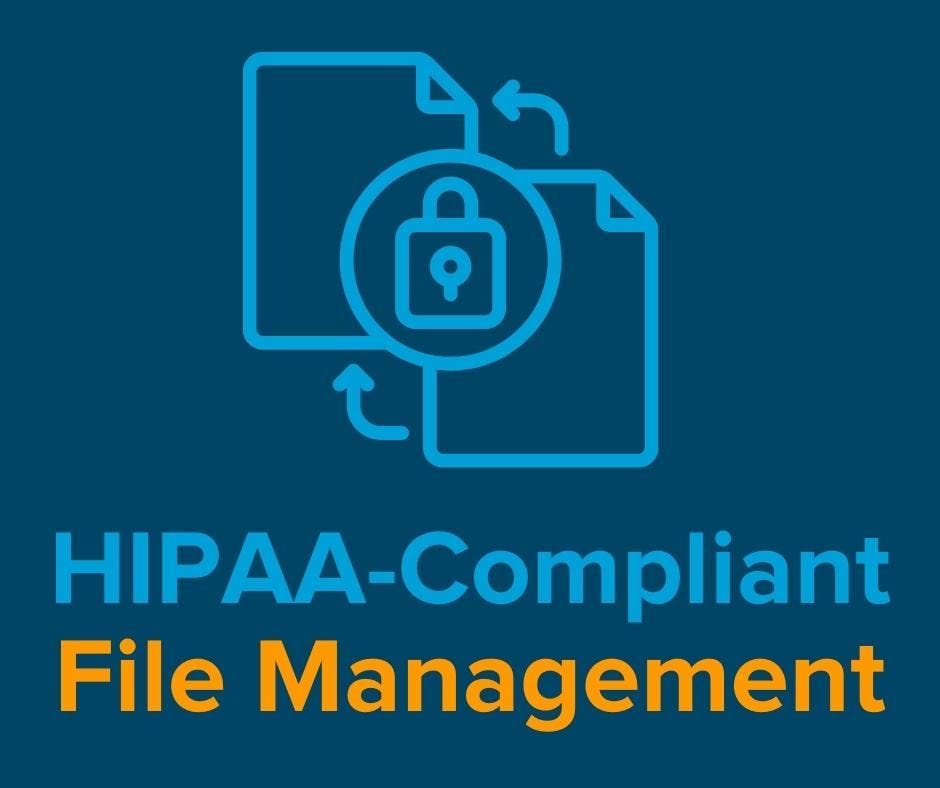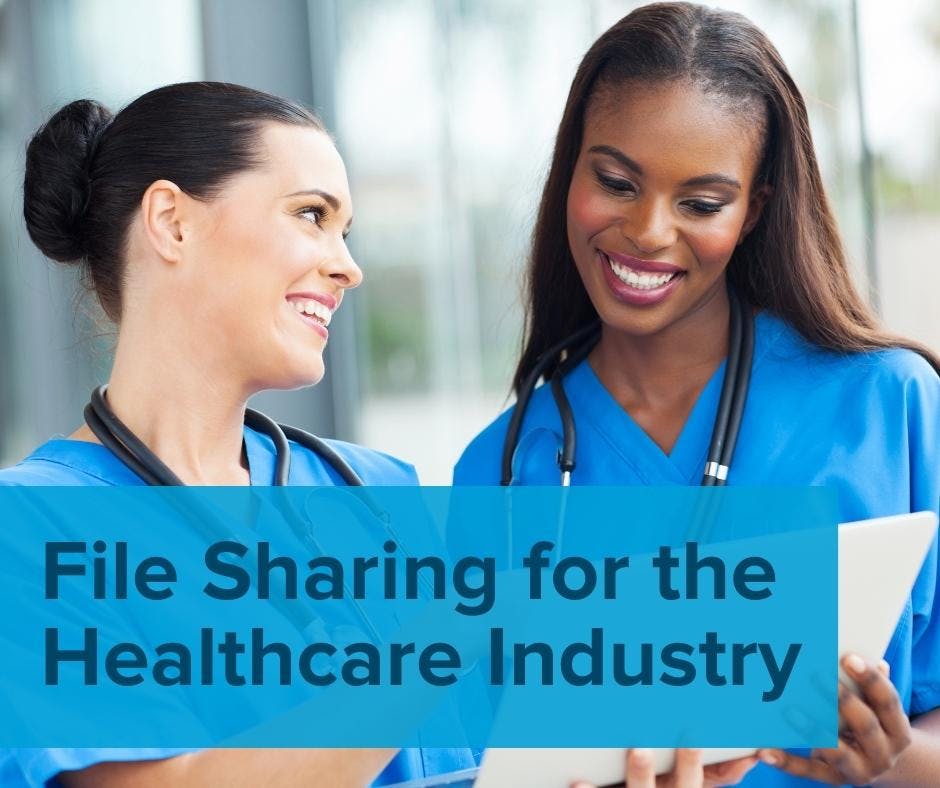If you work in the healthcare field, you understand just how important it is to protect the information of your patients. Today, there are a lot of hospitals and medical systems that would not survive without access to the internet. Medicine is a team sport, so there are more people involved in the care of patients than ever before. Even though it is essential for you to make sure you can get information from the rest of your treatment team easily, it is also vital for you to make sure that you protect that information.
That is why you need to think about your file-sharing solution. There are several important points you need to keep in mind as you look for the right program, so make sure you maximize the efficiency of your team while also protecting the confidential information of your patients and clients.
Focus on HIPAA Compliance
One of the first things you need to think about is HIPAA compliance. HIPAA refers to a set of regulations that went into effect back in 1996. This federal law requires everyone who works with protected health information to keep that information confidential. Even though it refers to physical security standards, it has been expanded to include electronic standards.
The goal of HIPAA is to make sure information flows seamlessly between healthcare providers while also preventing people from accessing this information without appropriate authorization. You need to follow several important points if you want to maximize your HIPAA compliance. They include:
- You need to ensure the availability, confidentiality, and integrity of all of your protected health information.
- You must make sure you have measures in place to quickly and accurately detect possible breaches while also safeguarding against future threats.
- You must ensure that everyone in your workforce is certified under HIPAA and understands what they need to do to protect confidential information.
In total, there are 18 categories of information that qualify as protected health information, usually shortened to PHI. All of these categories need to be protected. If the information has any one of these categories, it falls under the umbrella of HIPAA. These categories include:
- The names of patients and anyone else who might be involved in the treatment plan
- Any dates related to the treatment plan, including the date of admission and the date of discharge
- The patient’s birthday and address, which includes zip codes, cities, and street names
- Social Security numbers, fax numbers, patient account numbers, and medical record numbers
- Contact information, such as a telephone number or email address
- Any information related to vehicles, including the patient’s driver’s license number, license plate number, or VIN
- Any websites are IP addresses that might be related to the patient
- Biometric identifiers, including fingerprints, blood types, and voice scans
- Any images of the patient containing their face
- Anything that could be construed as a unique identifying feature
If the information contains any of the protected categories above, it qualifies as protected health information, and HIPAA governs it.
Why Do Hackers Want To Steal Patient Information?
There are a number of reasons why hackers are interested in stealing patient information, and many of them are related to financial issues. When people go to the hospital, they often use credit cards, bank account information, and social security numbers to tie them to their medical records. If a hacker gets their hands on this information, they can commit identity theft, stealing money from that person. Because there is so much sensitive information, you must make sure that you protect it accordingly.
Furthermore, some of the reasons patients visit the hospital can be very sensitive. Therefore, hackers might be looking for an opportunity to potentially exploit them. Prevent this from happening by taking the necessary steps to protect the confidential information of your patients.
How the Healthcare Field Can Protect Their Files and Information
There are several important tips that everyone in the healthcare industry should follow to make sure all confidential information is protected. These tips include:
1. Use Granular Permissions
You should try to use granular permissions to your advantage. What this means is that you may want to specify which files people have access to. You do not necessarily need to give someone access to all of the files on the server. Furthermore, it is better to give people access to certain files only if they need them to do their jobs.
This does not necessarily mean that you do not trust the person. It is important to lessen your risk. For example, what happens if someone steals that person’s password? You probably do not want them to have access to every file. Otherwise, all of your information would be compromised.
If you use a solution like SmartFile, you can assign granular user roles and permissions. You should not give someone access to files they don’t need to do their job. You can protect your confidential information by taking advantage of granular user roles and permission.
2. Educate Your Employees
Your files are only as safe as your least educated employees. How will they know if you don’t teach them? There are several important topics that you need to cover. They include:
- You should start by focusing on physical security. For example, you should explain to your employees which files need to be shredded and how they can protect their computers when they walk away by logging out.
- In addition, you need to focus on phishing attacks. They are a significant concern in the current environment, and you need to make sure your employees do not fall prey to them. Ensure your employees know that you will never ask them to remotely surrender their username and password.
- Furthermore, you should talk to your employees about the potential risks of fines and sanctions the company could face if they do not comply with HIPAA. Government rules and regulations must be followed, and you need to explain to your employees why.
- Finally, you should also talk to your employees about password hygiene. Explain to your employees why it is vital to create a strong password and why they need to change it from time to time.
3. Use Strong Password Solutions
Next, it is important for everyone in the healthcare field to make sure they use strong passwords to protect key files. In particular, a lot of people do not realize that they can actually protect their links and file attachments using passwords as well. Even though people need to make sure they have a strong password on their email accounts, they also need to have a strong password on important files. Think about how often people walk away without closing the computer. Someone who walked by could have access to the email account, which is why files need to have an extra layer of protection.
With a solution such as SmartFile, you can add passwords to your most important files. Some of the tips to keep in mind when generating a strong password include:
- Make sure the password is long enough to make it difficult to guess.
- You should create a password with a mixture of lowercase and uppercase letters.
- Add numbers and special characters to make the password even harder to guess.
4. Enforce Good Password Hygiene
You can also make sure that you enforce good password hygiene in the workplace as well. In particular, you should force your employees and staff members to change their passwords from time to time. For example, you might want to force them to change their password once per month or every three months.
In addition, you may want to prevent people from reusing old passwords. You could institute a requirement that prohibits someone from using a password they have used in the past year. Changing passwords is essential because people do not always realize when their password has been stolen. If the password is changed, anyone who may have stolen that specific password will no longer have access to the files.
5. Use Two-Factor Authentication
If you want to improve your security, you should take advantage of two-factor authentication. What this means is that you may want to ask people to provide a second set of credentials after they successfully enter the first one. Even though this can be a bit cumbersome, it is important for protecting your most sensitive files.
This does not necessarily need to be invasive. For example, if someone successfully enters a username and password set, you may want to follow this up by sending a text message verification code. Then, if someone successfully enters the text message code, you grant them access to the file. Two-factor authentication is necessary because it can help you protect your confidential information if someone has their username and password stolen.
6. Use Notifications and Activity Reporting
You also need to keep track of who is accessing specific files. This is another helpful feature you can use from SmartFile. This is an important component of government regulations. You need to keep track of who is accessing specific files, when they access them, and what they do with them. You may even want to audit your internal records from time to time, and SmartFile can make it easier for you to do so.
There are some records that might attract more attention than others. For example, if you know a celebrity is staying at the hospital, some people might be interested in digging into their medical records. If you let people know that there are notifications and activity tracking features in place, you can protect that person’s confidential information. This can reduce your vulnerability to potential fines and sanctions while also improving the level of confidence your patients have in your system.
7. Maximize Encryption
Finally, you need to make sure that all of your files are encrypted. Encryption means that people cannot steal your file or read the information unless they have the appropriate decryption key. It is an incredibly important part of protecting your files in the healthcare field.
With SmartFile, you can take advantage of end-to-end encryption. This means that your files are encrypted when they are at rest and when they are in motion. A lot of hackers try to steal files by intercepting them as they are being sent from place to place. If you want to ensure your files are encrypted from end to end, you can count on us to help you.
Use SmartFile To Secure Your Files in the Healthcare Field
Ultimately, these are just a few of the tips you need to follow if you want to make sure you protect your files appropriately. With SmartFile, you can take advantage of a number of benefits, including:
- SmartFile meets every requirement imposed by the US government with regard to electronic health data safety and privacy.
- You can take advantage of granular permissions that control what people can share, download, upload, or delete.
- End-to-end encryption can make sure all of your files are appropriately protected with the latest encryption methods.
- You can get access to reporting features that will ensure you never lose track of a file again.
All of these are incredibly important for proper data safety and security in the healthcare field. If you want to streamline your daily operations while also protecting your confidential information, put SmartFile to work for you. Contact us today to learn more about how we can assist you.


